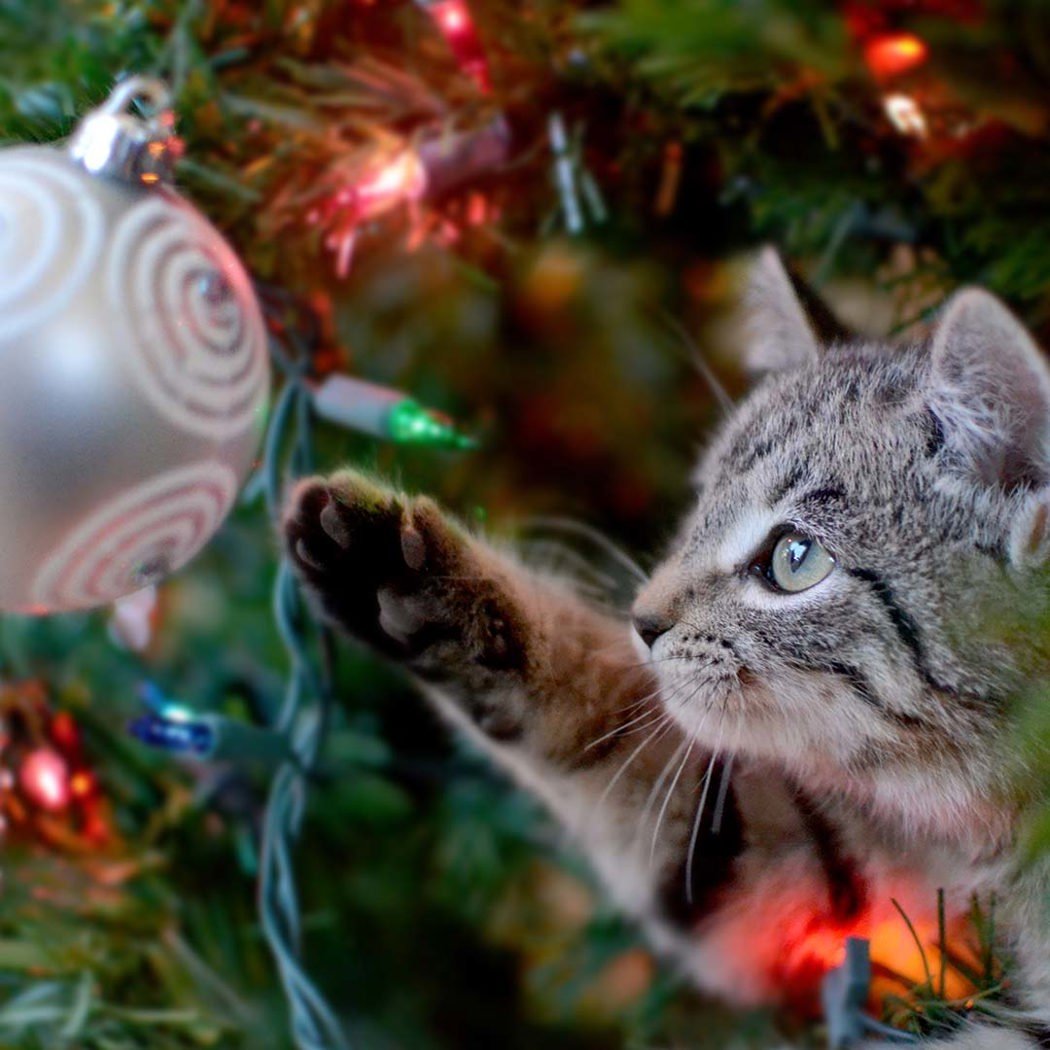Holiday Season with your pets
- Cat
- Dog
The holiday season is fast approaching, and this festive period can be dangerous for your pets. Below are some tips to help you celebrate the holidays without worrying about your four-legged friend.

Decorations
When we think of the holidays – Christmas in particular – it is often the tree that decorates our homes is what first comes to mind. Both the tree and the accompanying decorations may become targets for your pets to explore.
When it comes to a Christmas tree, it is a good idea to choose a medium-sized one. Trees over seven feet tall can be dangerous for pets, especially those who are adventurous and may try to climb it. Trees can fall over if not secure, damaging your decorations and possibly injuring your pet. The taller the tree the more damage it is likely to cause if it falls.
Your pet can also easily ruin a smaller tree, such as a table tree, because the ornaments are too easy to reach. We would recommend a tree that is no taller than five feet.
Once you have selected your tree, the next thing to think about is ornaments. Some of these can be dangerous for your pet. Here is what to avoid:
- Edible ornaments such as candy canes and chocolate are toxic for your pet, and are very tempting because of their smell.
- Glass ornaments, which are delicate and break easily, can be dangerous if your pet steps on or tries to eat a piece of glass.
- Fake ice or snow can be harmful if your pet ingests it.
- Very small decorations are a choking hazard for your dog or cat.
Strands of Christmas lights can be dangerous. Pets may be tempted to eat a light bulb that has come loose or chew on the power cord, and that could mean electrocution. For lights and decorations that require electricity, here are some things to think about:
- Unplug electric cords when you leave home. That way, your pet will not get a shock if they decide to chew on it while you are away.
- Check around the tree regularly to make sure no light bulbs have come off a strand.
- Do not leave wires trailing on the floor within your pet’s reach.
- Plug your Christmas lights into a power bar that automatically shuts off the power in event of an overvoltage.
Plants
You may wish to decorate your home with popular holiday plants. However, some of these can be poisonous to pets. Holly berries can cause indigestion in dogs and cats while mistletoe is much more harmful and could cause heart problems or a dangerous drop in your pet’s blood pressure.
Gifts
Although presents look pretty wrapped and accessorized with items like ribbons, it is a good idea to choose plainer wrapping. Avoid accessories that can easily become detached for your gifts. These can become a choking hazard for your pet.
Also, try to place presents under the tree as late as possible. Otherwise, they might be unwrapped a little earlier than you planned!
Food
It would not be Christmas without a festive dinner, and that often means turkey. However, it is important not to give your dog or cat bones to gnaw. Bones are fragile and could choke your pet, or worse, cause blockages or lacerations in their stomach or intestines.
Also, avoid feeding your pet table scraps, especially high-fat foods, as these could cause your furry friend some severe indigestion.
Noise and stress
The holiday season is festive but it can also be busier than normal. Try to maintain your dog or cat’s routine to avoid causing them undue stress or anxiety.
The holidays also usually include extra people being around. It is important to provide a quiet room for your pet - especially if he or she is naturally anxious - where they can go to be away from the noisy festivities. Put a bowl of fresh water in the room along with a few toys, and your pet’s bed. That way, your pet will enjoy the evening as much as you do.
Wishing you and your pets a happy and safe holiday season.